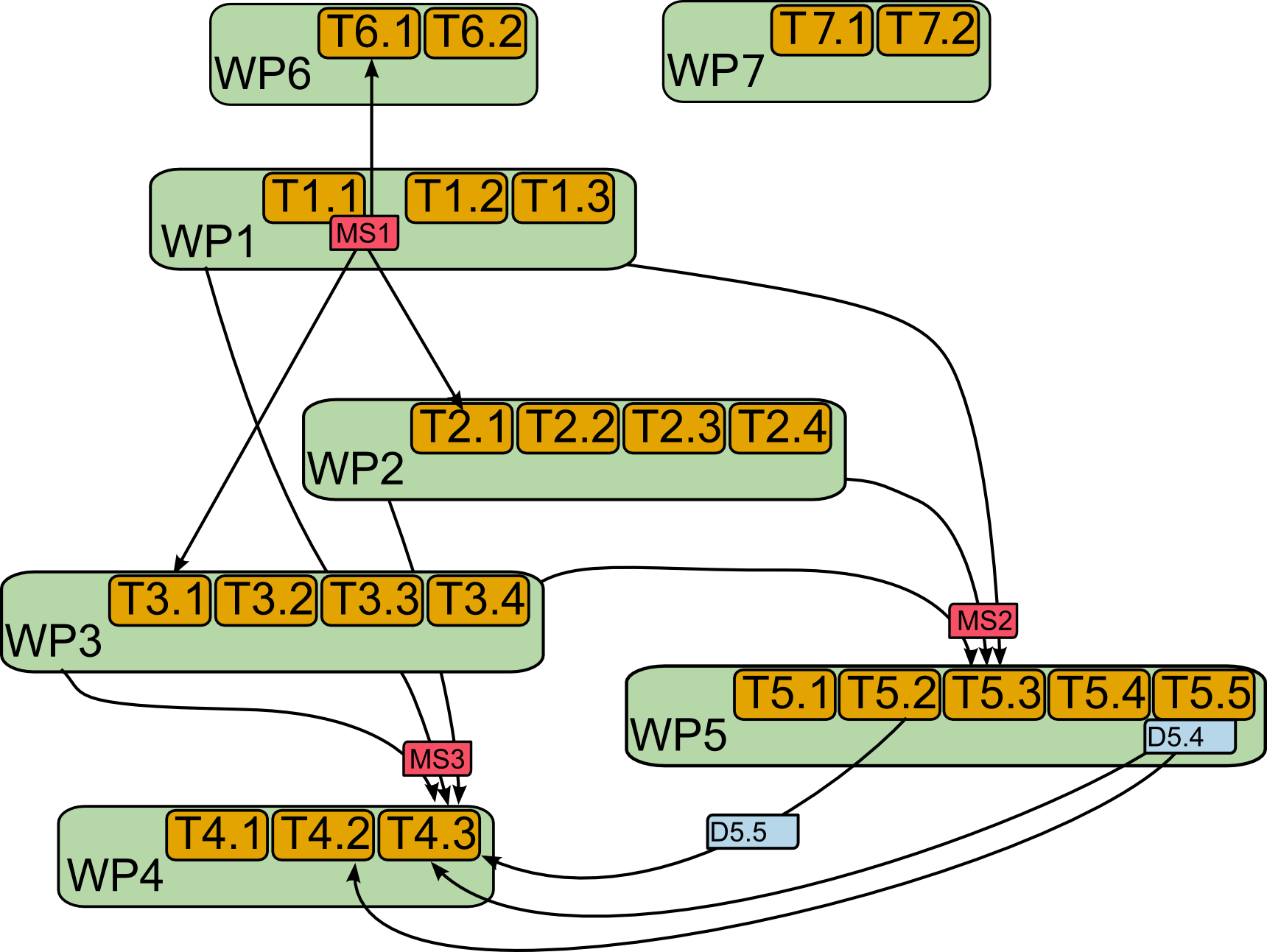Project Structure & Advisory
netCommons brings together research groups and institutions in the area of “networks” and collaborative platforms with expertise in engineering, computer science, economics, law, political science, interdisciplinary research. More specifically, the partners of netCommons include four universities, one research center and one nonprofit organization (UniTn, UPC, AUEB-RC, UOW, CNRS, Nethood, respectively from Italy, Spain, Greece, UK, France and Switzerland). The coordinator is UniTn via the ANS group led by Renato Lo Cigno at DISI.
To achieve these objectives, netCommons is organized in six principal work-packages:
- WP1, led by UPC, analyzes and clarifies the internal organizational model of different CNs. Organizational models influence both the socio-economic and management aspects of the network and the way relationships with external entities are implemented. The goal of this WP is to create a portfolio of organizational models that CNs can adopt to improve their internal governance, for a better and more democratic exploitation of their resources and to have a stronger impact on external society.
- WP2, led by AUEB-RC, investigates the sustainability of CNs, it will identify its political and ethical values, the incentives to make CNs grow and the tools that CNs can use to monitor that the ethical values are kept intact with the growth of the network. It will clarify the political values of CNs, and the related aspects of sustainability for CNs.
- WP3, led by UniTn, is dedicated to open-source applications for CNs. This WP will build on existing open source projects for P2P cloud and streaming applications and use them as building blocks to develop applications that can exploit the potential of CNs for local communications in the fields of distributed cloud systems and P2P video streaming. We will also develop a participatory methodology to improve the self-production of applications by CN members, with special attention to CAPS, and applications for crowd* use of the technical and social resources of CNs.
- WP4, led by CNRS will analyse CNs in relation to their surrounding socio-legal environment and produce general policy guidelines for the internal management of the CNs and for policy makers to preserve CNs as a commons. It will raise awareness of the CNs managers and users on the legal constraints of their activity and produce recommendations for the policy-makers based on the CNs needs.
- WP5, led by UOW provides a strong interdisciplinary contribution to some key themes of Internet Science revolving around the topic of Alternative Internet/s. We will discuss the premises on which we can build an alternative, more sustainable model for the Internet, starting from experiences of existing “Alternative Internets”, such as CNs.
- WP6, led by NetHood maximizes the impact of research carried out the other WPs with communications and dissemination activities. We will dedicate a significant amount of effort in communicating the results of the project to key actors including CNs, neighbourhood communities, local authorities, stakeholders, politicians, and the wider academic community. We will achieve this objective by "translating" the outcomes of the project into the appropriate languages and perspectives of the different actors.
The WPs are strictly intertwined and interact one with the other, the following PERT diagram describes the interactions among the WPs, through deliverables and milestones:
 Roles of responsibility of the project:
Roles of responsibility of the project:
- General Coordinator: Renato Lo Cigno
- WP Coordinator: Leonardo Maccari
- WP1 Leader: Leandro Navarro
- WP2 Leader: Merkouris Karaliopoulos
- WP3 Leader: Leonardo Maccari
- WP4 Leader: Melanie Dulong de Rosnay
- WP5 Leader: Christian Fuchs
- WP6 Leader: Panayotis Antoniadis
- Dr. Arjuna Sathiaseelan is the CEO of the Ammbr Research Labs (part of the AmmbrTech group). Before moving to the industry, Dr Arjuna Sathiaseelan directed the Networking for Development (N4D Lab) at the Computer Laboratory, University of Cambridge. The research group conducted research on novel Internet architectures for improving and reducing the cost of Internet access. He founded and chaired the IRTF Global Access to the Internet for All (GAIA) research group and was a member of the Internet Research Steering Group (IRSG).
After two very fruitful years of interactions, suggestion and debates in the summer of 2018

